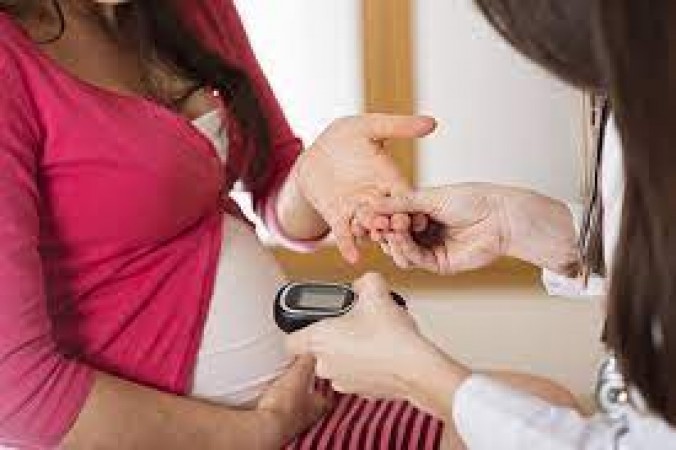
Pregnancy is a transformative journey, marked by numerous physical and emotional changes. It's a time of anticipation, excitement, and a touch of anxiety. Amidst all these emotions, certain concerns also come into play, such as the risk of health issues for both the mother and the unborn child. One such concern that has gained attention is the potential link between a mother's diabetes and the risk it poses to her child. Let's delve into this topic and understand the underlying reasons.
During pregnancy, a mother's health profoundly influences the health trajectory of her child. Research has shed light on the intricate connection between a mother's diabetes and the increased risk of the child developing diabetes later in life.
Studies have indicated that children born to mothers with diabetes, particularly gestational diabetes or type 2 diabetes, face a higher risk of developing diabetes themselves. This phenomenon hints at the influence of both genetics and intrauterine environment.
Genetics plays a pivotal role in determining an individual's susceptibility to diabetes. If a mother has a history of diabetes, it might be passed on to the child. However, genetics alone doesn't tell the whole story.
The environment within the mother's womb significantly impacts the child's health. This environment is influenced by various factors, including the mother's diet, lifestyle, and her own health conditions.
Elevated blood sugar levels during pregnancy can affect the developing baby's pancreas – the organ responsible for producing insulin. An imbalance in insulin production and utilization might set the stage for diabetes in the child's future.
Epigenetics, the study of changes in gene expression, adds another layer to the equation. The mother's diet and lifestyle choices can modify gene expression in the developing fetus, potentially increasing the child's diabetes susceptibility.
While the connection between a mother's diabetes and her child's risk of diabetes is becoming clearer, there's room for proactive steps to mitigate the risk.
Expectant mothers diagnosed with gestational diabetes can work closely with healthcare professionals to manage their blood sugar levels. This can potentially reduce the risk of passing on diabetes to the child.
Pregnancy is an opportune time for both mothers and fathers to adopt a healthier lifestyle. Balanced diets, regular exercise, and stress management can collectively contribute to a healthier intrauterine environment.
After childbirth, regular check-ups for both the mother and the child are crucial. Monitoring blood sugar levels in the child and intervening at the earliest signs of imbalance can make a difference.
The relationship between a mother's diabetes and her child's diabetes risk is a complex interplay of genetics, environment, and lifestyle. While the risk exists, it's important to remember that it's not a certainty. With proper care and vigilance, the path forward can be one of health and well-being.
Healthcare providers, expecting parents, and even society at large have a role to play in supporting healthier pregnancies. Raising awareness about the diabetes connection can lead to informed choices and healthier outcomes.
Understanding the potential risk can empower individuals to take charge of their health. By making informed choices, individuals can break the cycle of diabetes transmission and create a healthier legacy for generations to come. As the journey of pregnancy unfolds, the topic of a mother's diabetes and its impact on her child's health becomes an important consideration. While the risk of diabetes transmission is present, it's essential to approach it with a balanced perspective. Genetics, environment, and lifestyle factors all contribute, but they don't dictate the future. Through proactive measures, informed choices, and a collaborative approach, the cycle of diabetes risk can be broken, paving the way for healthier beginnings.
How Often Should You Wash Your Jeans? A Simple Guide
Timeless Fashion: Items of Clothing and Accessories That Are Always in Style
Five Must-Have South Indian Fabrics for Every Textile Enthusiast